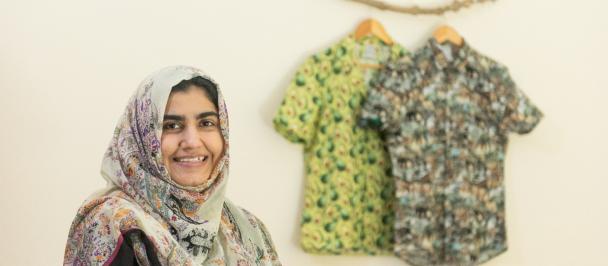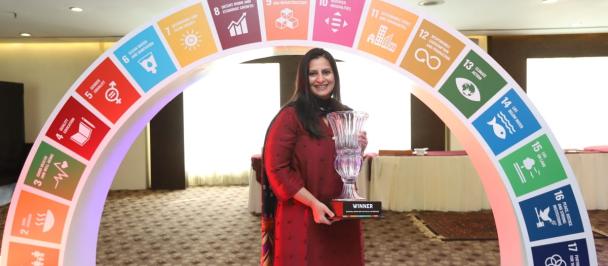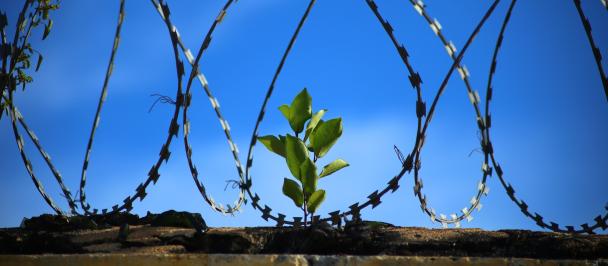“Due to poor health, I had to quit my job. My unemployment worsened the financial situation of my family. It was then when I thought of doing business. I decided to give it a chance and that chance changed my entire life”, says Farhad
Farhad had worked as a truck driver for almost 31 years, transporting goods across the major cities of Pakistan. Belonging to village Aishe Khel of Landi Kotal in Khyber Pakhtunkhwa, Mr. Farhad is a 49-years old father of nine children. Even though he never had the opportunity to attend school, his only dream was to educate his children.
Due to limited finances, his elder son had to start working as a ticket collector for a local bus after completing secondary school education. In early 2016, Farhad opened a small grocery shop in the guest room of his house. With savings of PKR 80,000, he borrowed some additional money from his relatives to lay the foundation and fill it up with the required goods.
“Initially the income from the shop was very low, I just had enough to bear the minimal kitchen expenses and pay my children’s school fees . Now after three years, I am able to earn PKR 12,000 to 15,000 per month.” Farhad said.
Access to finance is a major hurdle for individuals and small businesses in newly merged districts of Khyber Pakhtunkhwa. As per FATA Development Indicators Household Survey 2013/14, only 0.3% of the loans were taken from banks and most of these were secured against collateral held outside FATA.
The Islamic microfinance organization has established two new branch offices with the support of UNDP and USAID in Bara and Landi Kotal areas of the Khyber district. These branches are catering to the financial needs of the community members by providing them interest-free loans and enterprise development training.
One day, few locals were discussing that an organization is providing interest-free loans to the community. Initially I took it as a hoax, but later few other friends also shared the same information. Out of curiosity, I decided to pay a visit to their branch office to get information about the loans.” said Farhad.
The branch office briefed him about the interest-free loan programme, the eligibility criteria, group/individual landing methodology, and the application process. After approval of loans, borrowers were invited to attend an enterprise development training organized at the branch office. During this training, they were oriented on basic concepts of entrepreneurship, planning, market assessment, enterprise development, promotion, record keeping, and other necessary skills required for managing a successful small business. During the training, participants were also paid PKR 600 as a stipend.
“This training was very resourceful. Even though I am in this business for last three years there were certain tips I never thought of applying. I was not keeping record of daily sales and stock purchases. Thus, I had no idea about my daily sale, expenditures, and monthly income. The training helped me do business differently and more effectively.“ he said
“With this loan, I expanded my shop and stocked it with new items like liquid petroleum gas (LPG) cylinders for resale purposes, purchased a refrigerator for cold drinks and juices, and some high-demand grocery items for the shop. This amount of Rupees 30,000 looks very small, but I firmly believe that if you work hard and with the help of the Almighty, you can earn millions from one Rupee.” he said.
Before receiving this loan, the daily sale of his shop was around PKR 4,000, but now it has doubled. Farhad is regularly repaying the monthly instalment of PKR 2,000. After repaying the loan in one and a half year, he will be eligible to receive another loan in a higher amount. Farhad plans to expand his shop with the new loan.
Project Background:
United Nations Development Programme- UNDP with the generous support from American People and United States Agency for International Development - USAID launched erstwhile FATA Economic Revitalization programme (FERP). The programme aims to provide sustainable livelihood and income opportunities to the communities of newly merged districts. One of the outputs of this project will help increase access to affordable micro-finance to at least 5,000 enterprises.

 Locations
Locations








